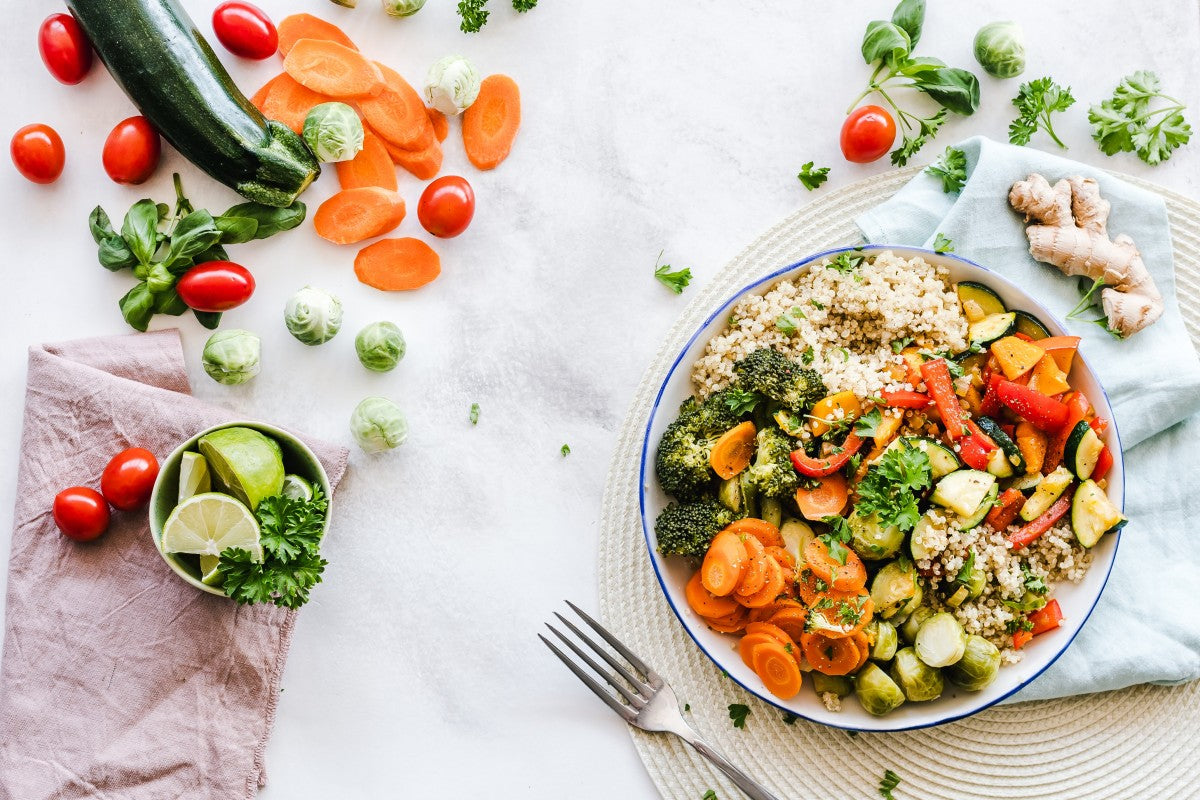Note: This article does not constitute medical advice. Please consult with your doctor before making any decisions regarding your health
Some people decide to go vegan for ethical reasons, while others choose it because they're concerned about their health. Either way, here are some benefits and dangers you need to know before making the decision yourself.
In recent years, more people have been making dietary changes towards healthy living and weight loss. Veganism has become one such change that many people adopt as part of their lifestyle. While some view this as an extreme choice, others see it as a means to improve their health while saving animals at the same time.
There are a lot of different types of vegans, so what would cause someone to decide to go completely meat-free? Why do they choose to eat like this? Can being a vegan help with losing weight?
All your questions will all be answered here today so read through the end!
How Vegans Eat
As we said earlier, there are lots of reasons why people turn vegan -- from animal cruelty concerns to environmental ones. However, most vegans simply want to live a healthier life without harming any other creatures.
There are several ways to achieve this goal. One popular method is through adopting a plant-based diet. This includes foods made entirely out of plants (e.g., fruits, vegetables) and those which contain only small amounts of protein.
Despite the fact that vegans may restrict themselves from eating options, the calorie intake of vegans is not as low as compared to non-vegans. This is because most of the food that vegans consume comes from whole grains, legumes, nuts, seeds, veggies, fruits, etc.
Therefore, they still get an ample amount of vitamins and minerals needed by the body.
What Are The Health Benefits?
One of the biggest benefits of going vegan lies in its ability to lower cholesterol levels. Animal products tend to raise LDL ("bad") cholesterol levels while lowering HDL ("good") cholesterol levels.
Some studies show that switching over to a vegan diet lowers total blood cholesterol levels, especially LDLs. Although research shows that following a strict vegan diet may require slightly higher caloric intakes, it doesn't affect heart disease risk.
As long as proper nutritional intake remains consistent, having a vegan diet shouldn't pose much threat to your overall cardiovascular health.
Other potential health benefits include lowered risks of developing certain cancers, reduced incidence rates of diabetes, decreased instances of high blood pressure, increased longevity, and improved cognitive functioning among elderly adults.
Studies suggest that vegans generally weigh less than non-vegetarians. However, it must be pointed out that this difference is negligible since both groups' average weights fall under normal ranges.
Of course, there are drawbacks to becoming a vegan. We'll discuss them next.
The Downsides To Being A Vegan
Although vegans enjoy numerous physical and mental health advantages, they aren't perfect. Let's dive into some common downsides that come along with being a vegan.
First up, vegans need to ensure that their nutritional intake meets their dietary requirements.
Otherwise, they may suffer from malnutrition, fatigue, weakness, muscle cramps, headaches, constipation, dry mouth, frequent urination, depression, etc.
If you've switched to a vegan diet recently, consult your doctor first if you notice any of the above symptoms.
Being vegan can lead to many nutritional deficiencies. One of the common disorders is B12 and folate deficiency. This can eventually lead to anaemia.
Vegans often lack omega-3 fatty acids, and this leads to many complications including cardiovascular disorders.
Besides, vegans often lack the normal production of hormones.
Finally, vegans sometimes experience ethical difficulties when choosing items to buy. When faced with a difficult decision regarding purchasing something, some vegans find themselves unable to justify supporting companies that exploit animals.
On the other hand, vegans need to remember that ethical dilemmas arise every once in a while. Most of the time, it's easier to purchase a brand name instead of a generic item. After all, buying cheaper versions may save money, but it sacrifices quality.
Why People Switch To Veganism
Vegans And Weight Loss
If you think about it, it makes sense why vegans lose weight faster than anyone else. First, they tend to consume smaller portions of food each day compared to non-vegans. Second, they rarely snack between meals. Thirdly, they seldom indulge in fatty dishes.
Lastly, the majority of their food comes from nutrient-dense sources like fruits, veggies, whole grains, etc. All of these factors combined contribute to quicker weight loss.
Note however that vegans don't necessarily gain extra pounds easily. Like I mentioned earlier, they remain lean regardless of their height, size, gender, age, etc. Also, most vegans start exercising regularly shortly after transitioning to their new lifestyles. Regular exercise helps maintain leanness and keeps us fit.
Finally, vegans need to drink 8 glasses of water every day. Drinking sufficient water helps control weight by regulating fluid balance inside the human body.
Without drinking enough water, the kidneys try to compensate for dehydration by retaining water. Thus, excess fluids end up building up in the body rather than leaving it normally.
Overall, vegans seem to burn more calories despite gaining significant results. So yes, you can expect to shed off weight quickly if you adopt a vegan diet. Still, it's important to note that you can't stop working out altogether. Doing so wouldn't yield positive results. Instead, combine your workouts with healthy habits and you'll soon reach your fitness goals.


